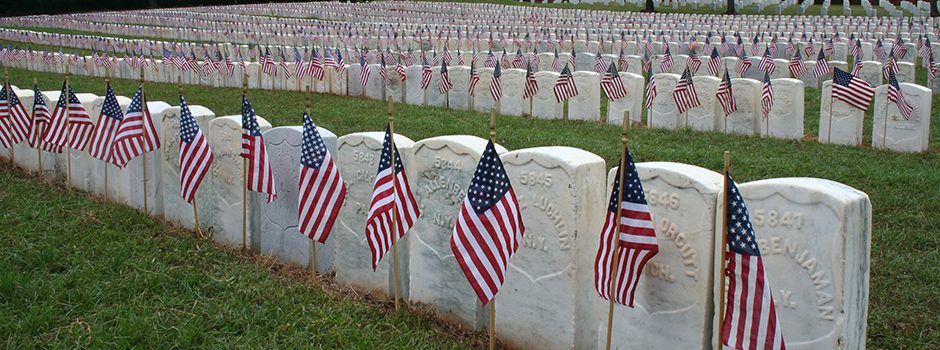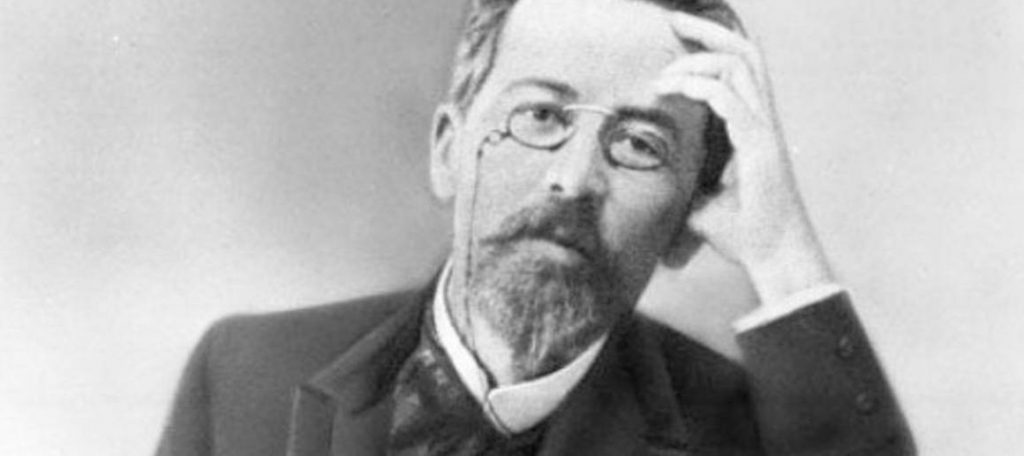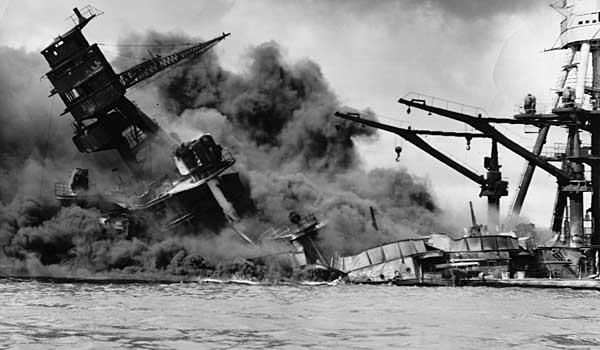If you wish, you can hear this sermon as it was preached in the pulpit of the United Church of Jaffrey. Simply click to the play button below.
Delivered at the United Church of Jaffrey.
May 27th, 2018
Chekhov’s Gun
There is a rule that is well known among writers, that is named after Anton Chekhov, the great 19th century Russian playwright and short story writer.
The rule, which concerns plot development, is known as “Chekhov’s Gun.” The rule derives from the following advice that Chekhov gave to aspiring playwrights:
“If in the first act you have hung a pistol on the wall,” Chekhov advised, “then in the following act it should be fired. Otherwise don’t put it there.”
The observant among you may be wondering if you have to take cover. Since I bring up this business of Chekhov’s gun at the beginning of my sermon this morning, does that mean that its going to go off before I’m done?
Well, no. You don’t have to worry. I’m not that kind of minister.
I bring up Chekhov’s gun because I am interested, this morning, to find examples of actions that are incomplete unless another action follows.
Some actions are like this — they don’t make sense without a followup action.
If you plant a seed, you have to be willing to water it.
If you get a puppy, you better be willing to walk it.
A nice fancy car is nice, but it won’t go anywhere unless you fill it with gas.
Brush teeth / rinse mouth.
Grind coffee beans / add hot water.
Merge onto the highway / check rear view mirror.
If you brush your teeth without rinsing, you might get away with it, but if you merge onto I-91 without checking in your rear view mirror for on-coming trucks, you could kill yourself and a bunch of other people too.
As the father of teen age boys, I find myself invoking this principle fairly frequently.
One of the things I often hear myself saying is:
If you make a mess, clean it up!
To be fair, one of my son’s is obsessively clean, and the other one is not.
I think I would be abusing confidentiality if I told you which is which, so I’ll just leave it at that.
One day recently, after a despairing glance at one bedroom (I won’t tell you which one) I remarked with my best preachy voice:
“Human civilization is engaged in the eternal struggle to impose order on chaos, and you, young man, seem to have already lost the fight.”
It was, by my standards, one of my finer moments, but my son was unimpressed.
This episode brings to mind the words that Jesus said to Nicodemus in the passage we heard this morning.
“The wind blows where it chooses, and you hear the sound of it, but you do not know where it comes from or where it goes.”
To mature, in this human life of ours, is to become increasingly aware of the impermanence and unpredictably that is at the core of our existence — we are, at all times, a hairs-breath away from events that could either spell instant death, or an utter and complete life change.
The wind blows where it chooses.
We like to think that we can put our house in order, and keep chaos at bay…
but ultimately, we have very little control over what happens in our lives.
Our lives are like the wind — we can “hear the sound of it, but we do not know where it comes from or where it goes.”
Re-memory
Tomorrow is Memorial Day.
Memorial Day is a day when we, as a nation, set aside time to honor the many people, from many generations, who have died in the service of our nation’s military.
The word “Memorial” is of course, built of the word “memory” — and this is what we do on Memorial Day.
We remember.
To remember is memory in action.
Isn’t it funny — usually words that start with the prefix “R.E.” are compound words like re-new, re-locate, re-negotiate, re-finance —
If you take the R.E. off the front, you have a word that has its own meaning
re-new modifies the word new
re-locate modifies the word locate
Adding the prefix “RE” modifies the original action by making it the action happen again.
To finance your house again, is to re-finance.
To negotiate your contract again, is to re-negotiate.
According to this logic, the word re-member is odd.
It should be re-memory.
And, as it turns out, that is exactly what remember means — it means to have a memory again.
So, on Memorial Day, we don’t just have a memory — we have a memory again.
We acknowledge that certain memories lay a claim on us that are important enough to have again…
And again…
Every year.
And…
If you ask me…
This remembering is part of that eternal struggle that I mentioned earlier — Human civilization’s eternal struggle to impose order on chaos.
It’s… Complicated!
I have to admit, at this juncture of the proceedings, that I come at the whole Memorial Day phenomenon from a little different angle than many Americans.
I can start by affirming that yes, I do honor the Americans who gave their lives in war.
But I cannot stop there.
As I see it, this important act of re-memory is the first action — it is the planting of the seed.
Another action must follow…
Another action, to water that seed.
As you know, my father was Japanese and my mother was American.
I am the child of two individuals whose peoples were locked in one of the bitterest conflicts in human history.
My father’s people were in the planes above Pearl Harbor, and my mother’s people were on the ships.
My mother’s people were in the plane above Hiroshima, and my father’s people were on ground when the atomic bomb exploded.
I am the result of this historical legacy.
So Memorial Day is a little complicated for me.
I can honor America.
I can sing about its beauty.
I can honor the ideals of freedom and democracy.
I can honor the sacrifice that our men and women in the armed services have made protecting these things that America stands for.
But do not ask me to suggest that war, itself, is a human endeavor that should be glorified.
I cannot do that.
Do not ask me to pretend that every time our nation has deployed our military, we have done so in a manner that properly honors the ideals that our country stands for.
I cannot do that.
I hope you will not think I am against any person who is in the military.
I’m not anti-military.
I am anti-war.
Just as the son of a Jewish mother and German father, must be painfully aware of genocide…
I, as the son of a American woman and a Japanese man, am painfully aware of the horror of war — and in particular, of nuclear war.
The Second Action
To a person like me, Memorial Day is important — but it cannot be only about remembering the dead, for that is perilously close glorifying war itself.
Honoring the soldiers is the first important action that we must observe as part of Memorial Day.
The second action…
The second action that gives sense to the first action…
Is to abhor the reason for their death.
The greatest thing that the observance of Memorial Day could ever achieve, would be to make itself obsolete.
If a man dies of a heroine overdose, we do not glorify the heroine.
Likewise, a true observance of Memorial Day, should honor the dead soldier, without glorifying the war that killed him or her.
Memorial Day should be a serious affair — one that causes the soul searching necessary to end war itself.
This is an act that is worth repeating again
and again
every year
until we get it right.
Amen.




